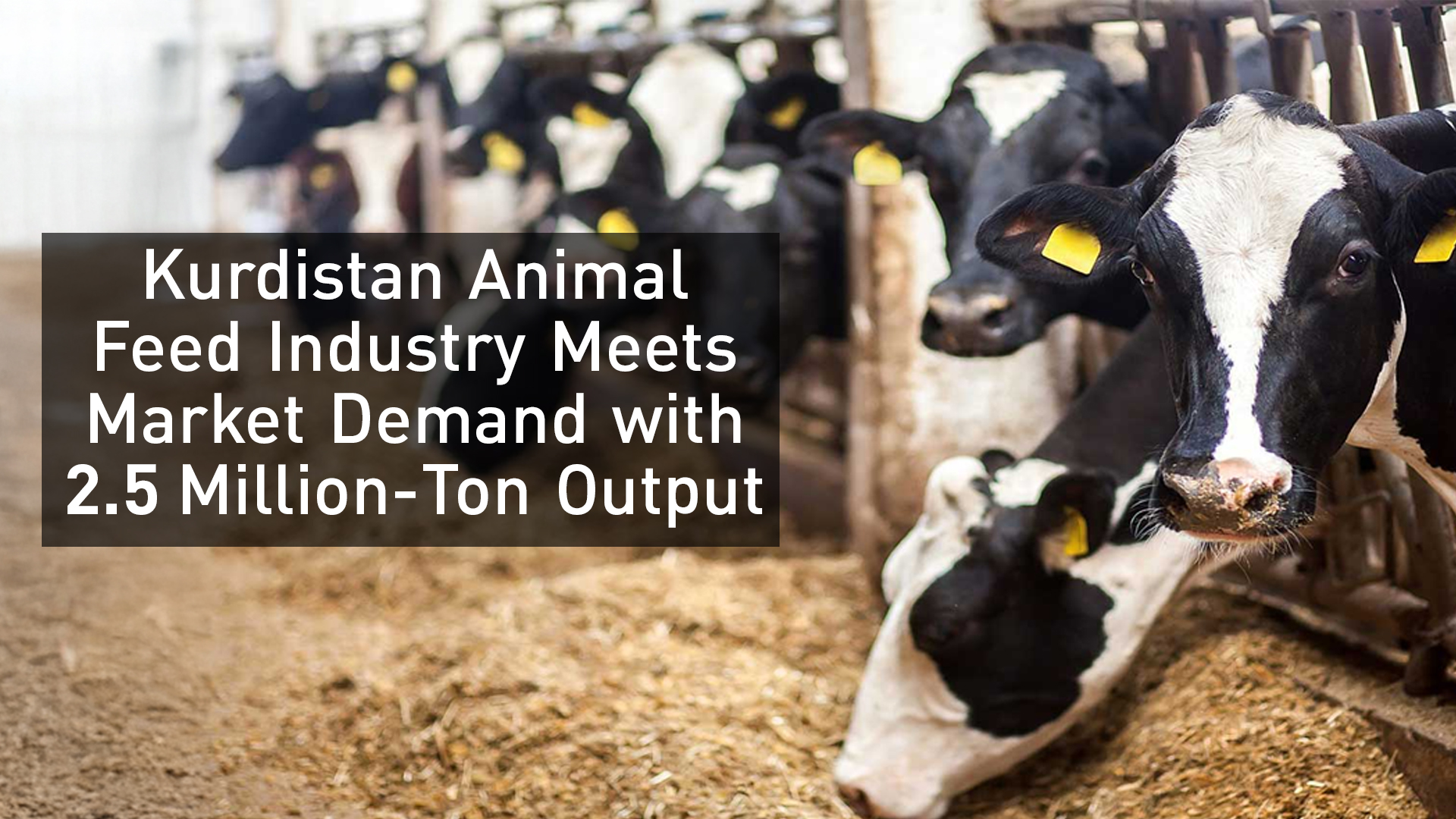Kurdistan Animal Feed Industry Meets Market Demand with 2.5 Million-Ton Output
Kurdistan’s animal feed sector relies heavily on domestic crops, with corn, wheat, and barley forming the core of a multi-million-ton annual industry.

ERBIL (Kurdistan24) — The Kurdistan Region produces an estimated 2.5 million tons of animal feed annually, a senior agriculture official announced on Thursday.
Firas Sadiq, Director General of Animal Resources at the Kurdistan Regional Government (KRG) Ministry of Agriculture, told Kurdistan24 that local factories have the capacity to produce this amount each year, meeting a significant portion of the region’s demand.
He explained that most of the raw materials needed for production are sourced domestically. “A large number of farmers cultivate yellow corn, which after being dried, is used in Kurdistan Region factories as a key component in feed production,” Sadiq said. Wheat and barley are also among the locally produced crops that play a central role in the feed industry.
However, Sadiq noted that other essential inputs, such as soybeans, still need to be imported to cover the market’s needs.
The official underlined that the KRG’s ninth cabinet placed strong emphasis on agriculture, removing customs duties on domestically used raw materials for feed production. This policy allowed factories to import needed supplements and materials tax-free, while continuing to encourage the use of local harvests.
Agriculture has long been a pillar of Kurdish society, though decades of conflict, displacement, and economic instability disrupted farming traditions across the region. In recent years, however, the Kurdistan Regional Government has sought to revive the sector as part of a broader policy to diversify the economy away from reliance on oil revenues.
Animal husbandry and feed production have emerged as vital components of this strategy, especially given the Kurdistan Region’s growing livestock sector. Reliable access to animal feed not only sustains local farmers but also supports the dairy, poultry, and meat industries—key areas for ensuring food security and reducing dependence on imports.
The KRG has introduced a series of measures to support farmers, including subsidies, credit facilities, and the elimination of customs fees on imported raw materials that are essential to industrial feed production. The focus has been on combining local production of crops such as wheat, barley, and corn with limited imports of soy and other protein-rich supplements to maintain a balanced supply.
Subject-matter experts note that expanding the agricultural base is not only an economic necessity but also a political goal, as the Kurdistan Region seeks to shield itself from market shocks, regional import restrictions, and the risks of overdependence on oil revenues. The government has also emphasized the role of agriculture in creating rural employment opportunities, preventing migration from villages to cities, and reviving areas long neglected due to war and instability.
The continued growth of the animal feed industry is therefore seen as a cornerstone of the Kurdistan Region’s efforts to strengthen its non-oil economy, enhance food security, and ensure sustainable rural development in the years ahead.
